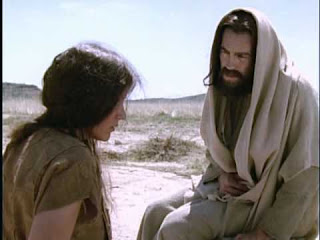In the parables of today’s gospel, Jesus reminds us that the
Kingdom of Heaven is hidden and valuable.
It is a tremendous treasure that brings us many blessings, including
eternal life. Like the one who
discovered the buried riches and the other who found the pearl of great price,
we are to do whatever it takes in order to share in the Kingdom. And then we are to be faithful to life in the
Kingdom so that at the final judgment we are not cast aside, but instead found
to be worthy of a place for all time in the fullness of the Kingdom.
We enter into the Kingdom through our baptism. We become adopted sons and daughters of God,
brothers and sisters of Jesus. We are filled
with the Holy Spirit, who gives us what we need to fulfill God’s will for our
lives. In the first reading, God is
pleased with young Solomon who knew what he needed to be a strong king. Solomon asked for wisdom and for a discerning
heart and was given what he asked for from the Lord.
And yet, when we recall our place in the Kingdom, and the
love of God that was poured into our hearts through the power of the Holy
Spirit, we know that we too have been given all we need. Solomon was given wisdom, and we too have
been given wisdom, the first of the gifts of the Holy Spirit. And we have been given understanding,
counsel, fortitude, knowledge, piety, and fear of the Lord, as well.
Solomon used the gifts he was given, but we, unfortunately, at
times forget that God has given so much to us and don’t put His gifts to use as
often as we should. There is much the
Holy Spirit desires to do within and for us, as individuals and as communities,
but we fail to give Him permission. God
has work for us to do and already has equipped us for that work, but we
hesitate to act.
We need to trust God more.
We need to treasure our place in the Kingdom of Heaven more. We need to make everything else in our life
secondary to seeking the Kingdom of God, believing that all else will be given
to us.
The second reading from Romans 8 tells us too that we need
to trust that “all things work for good for those who love God, who are called
according to his purpose.” We love
God. We are called according to God’s
purpose. Therefore, all things –
everything – that happens to us – will work for God. It’s amazing what Paul is saying here and
most of the time we don’t even hear it.
No matter what we are up against or struggle with or have to endure, God
will make sure that it will work for our good.
God is good, all the time and, therefore, we can trust the Lord to be
there for us at every moment of our lives.
God’s love has given us a place in the Kingdom as well as
many magnificent gifts. God’s love will
be with us every step of the way, working everything for good. And how should we respond? First, of course, with gratitude, but then quickly
followed by generosity.
St. Ignatius Loyola, whose feast we celebrate tomorrow, said
that love is a mutual exchange of gifts.
And since God has given us everything, we ought to make an offering to
God of all that we have. Each day with
a simple Morning Offering, we sanctify our day and glorify God with such a
gift.
Our relationship with the Lord in the Kingdom of Heaven is a
treasure, a pearl of great price, that we need to put above all else in our
life. God has and will continue to give
us gifts with an assurance that everything in our life will work together for
good. May our generosity to God always
seek to match His generosity to us.




